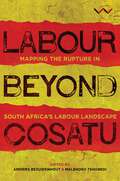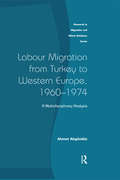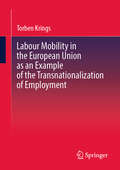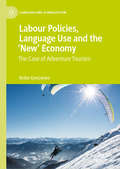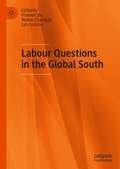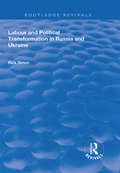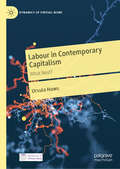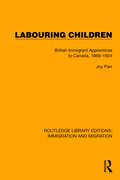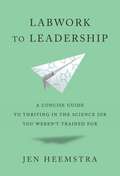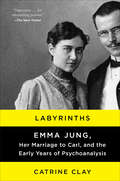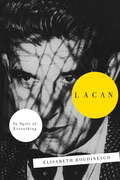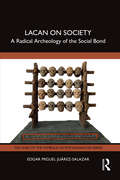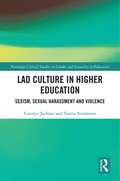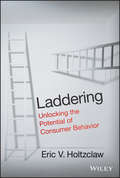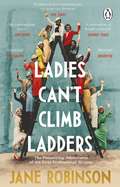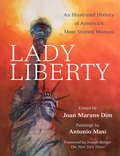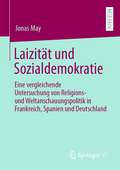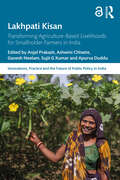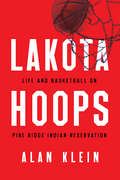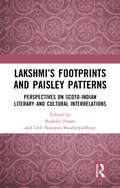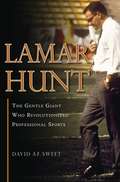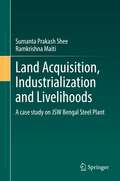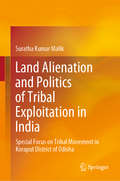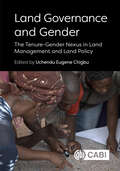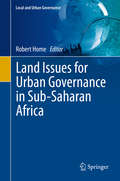- Table View
- List View
Labour Beyond Cosatu: Mapping the rupture in South Africa’s labour landscape
by ANDRIES BEZUIDENHOUT & MALEHOKO TSHOAEDILabour Beyond Cosatu is the fourth volume in the series Taking Democracy Seriously – a ground-breaking, textured and nuanced study on workers and democracy – which was established in the 1990s. The series looks at members of trade unions affiliated to the Congress of South African Trade Unions (Cosatu) and provides a rich database of trade union members and research conducted over the past twenty years. It is one of the very few such resources available to researchers anywhere in the world. Labour Beyond Cosatu paints a complex picture. The 12 chapters of the volume explore various rebellions and conflicts in the trade union sector, starting with the National Union of Mineworkers (NUM) and rivalries between Cosatu affiliates. Unpacking the conflicts between state-sector and private-sector workers, contributors look at the impact of generational and educational shifts, seen by some commentators as proof that Cosatu is now ‘middle class’. The book also raises the issue of gender in the unions by usefully locating the controversy around charges levelled at Zwelinzima Vavi in 2013 in the larger context of serious problems in the gender politics within parts of Cosatu.Refuting the image of a union federation solidly committed to the ANC, Labour Beyond Cosatu presents evidence of a sharp decline in support for the ANC within Cosatu, and growing scepticism towards the Alliance. It shows that attempts to understand the labour movement in South Africa in the future will need to include research of smaller, independent unions and social movements. The volume’s contributors make a major contribution to key debates on labour and democracy, providing new material that can potentially shift the discussion in important ways. This book will be of great value to students and researchers in Industrial Sociology, Political Studies, Industrial Psychology and Economics and Management.
Labour Migration from Turkey to Western Europe, 1960-1974: A Multidisciplinary Analysis (Research in Migration and Ethnic Relations Series)
by Ahmet AkgunduzGroundbreaking in its comprehensiveness, this book illuminates the migration of workers from Turkey to Western Europe with new perspectives previously overlooked in research. Indeed, this is the first study of its kind to cover the entire migration process, making extensive use of primary as well as secondary sources in four languages, and it draws on both the historiography and the social sciences of migration. It presents new analyses of the so-called 'push' factors behind this movement and explores the role of the sending state, the system and channels through which labour exits, the labouring population's attitudes towards moving to the West and the relevance of social networks in the migration process. The volume offers a critical assessment of the significance of Turkish labour migration with regard to the demand for foreign labour in Europe, with particular emphasis on the cases of Germany and the Netherlands.
Labour Mobility in the European Union as an Example of the Transnationalization of Employment
by Torben KringsThis book examines the changing significance of intra-European labor mobility in the 21st century. The focus is on the driving forces, the labor market effects and the regulation of this mobility. It is shown that there is a demand for workers with different qualifications in the "post-industrial" societies of Western Europe. This demand is primarily met by migration from the enlarged EU. However, this is no longer traditional labor migration, but the mobility of EU citizens. This brings with it new opportunities, but also challenges in a transnational mobility space, which is also a space of inequality.
Labour Policies, Language Use and the ‘New’ Economy: The Case of Adventure Tourism (Language and Globalization)
by Kellie GonçalvesThis book provides an in-depth analysis of language and tourist mobility within an adventure tourism context. It uses a critical and ethnographic approach, contributing to poststructuralist perspectives of social life that are currently undergoing considerable changes on social, political, cultural and linguistic levels. Drawing upon an array of data sources collected over five years on two continents, it examines and compares the way language and communication (e.g. speech, written texts, visual resources) are used within the production of place-making practices in two of the world’s top adventure tourism destinations: Interlaken, Switzerland and Queenstown, New Zealand. It centres on issues such as cross-cultural discourses, transcultural texts, and semiotic landscapes.
Labour Questions in the Global South
by Praveen Jha Walter Chambati Lyn OssomeThis book provides a focus on some of the main markers and challenges that are at the core of the study of structural transformations in contemporary capitalism and their implications for labour in the Global South. It examines the diverse perspectives and regional and social variations that characterise labour relations as a result of the uneven development which is an important facet of the intensification of capitalist accumulation.. The book provides important insights into the impact of the crises of capitalism on the wellbeing of labour at different historical junctures. Some of the issues covered by it include the conditions of work, and the changing composition of laboring classes and/or working people. The chapters also throw light on the multiple trajectories in the development of labour relations and employment in the Global South, especially after the ascendancy and domination of neoliberal finance capitalism. Some of the major aspects considered by the essays include the decentering of production and development of global value systems, crisis of social reproduction, and the rising informalisation of work.
Labour and Political Transformation in Russia and Ukraine (Routledge Revivals)
by Rick SimonThis title was first published in 2000. The years 1975 to 2000 are characterized by fundamental changes in the global political landscape. Perhaps the biggest change was the collapse of certain communist regimes. This text analyzes what that meant for the USSR and Europe. It looks at the cause of change, the social forces behind them and future prospects.
Labour in Contemporary Capitalism: What Next? (Dynamics of Virtual Work)
by Ursula HuwsIn this long-awaited book, Ursula Huws brings together the results of decades of prescient research on labour market transformation to provide an authoritative overview of the impacts of technological, economic, social and political change on working life in the 21st century.Placing current upheavals in global labour markets firmly in their historical context, she debunks myths about the impacts of artificial intelligence on labour, pointing to the processes whereby new employment is created, as well as old jobs destroyed, while never underestimating the contradictory impacts of digitalisation on work organisation, resistance, adaption and innovation.This book is underpinned by a clear conceptual framework, that analyses the dynamics of the restructuring of capitalism and labour, taking full account of unpaid social reproductive work, and integrating a feminist analysis whilst also pointing to new forms of commodification that will shape the future. Labour in Contemporary Capitalism will be an invaluable resource and point of reference for students and scholars studying the sociology of labour, economic structures, technology, and globalisation.
Labouring Children: British Immigrant Apprentices to Canada, 1869–1924 (Routledge Library Editions: Immigration and Migration #13)
by Joy ParrLabouring Children (1980) is a study of child immigrants, based on numerous original sources, and presents new views on childhood, social work and Canadian rural communities. Between 1868 and 1925 eighty thousand British boys and girls, mostly under fourteen, were apprenticed as agricultural labourers and domestic servants in rural Canada. A surprising feature is the involvement of the Evangelicals, who considered that they were giving children from poor homes a fresh start in the world, yet who were otherwise famed for their emphasis on the virtues of close family ties; and conversely, the parents of the children, largely labourers, who were at the time regarded as too ground down by economic imperatives to find time for affection, but who expended a great deal of effort to maintain contact across imposing distances. This book begins with an analysis of the growing child’s place within these families, and looks at the alternating prominence of demands for wage labour and fear of the ‘dangerous classes’ which influenced emigration policy idealism. The demand for child labour in rural Canada and the work of the children is described in an analysis of the apprenticeship system. The book also illustrates how the British child immigrants were household rather than family members in Canada and outsiders in the rural schoolroom as well. As adults they did not generally become farmers but entered factory jobs, service employment in urban Canada, migrated to the US or returned to Britain. Finally, the book discusses the ending of the movement after World War I, as Canadian social workers, echoing British socialists, argued that even the children of the poor deserved fourteen years of growing and schooling before they were obliged to sell their labour. Incorporating much rich documentation from numerous case records, and presenting a new quantitative use of some of those records, this book sheds light on a dark corner of the Canadian migrant experience.
Labwork to Leadership: A Concise Guide to Thriving in the Science Job You Weren’t Trained For
by Jen HeemstraA roadmap for running a lab—and developing the leadership skills you didn’t know you needed.As a graduate student and postdoctoral researcher, chemist Jen Heemstra learned how to collect data, write papers, and give talks to other scientists. But when, just a few years into her first job as a principal investigator, conflict broke out in the lab, she realized there was one skill she hadn’t learned: leadership.Labwork to Leadership is the book that every PI needs. Drawing on her decades of experience—including plenty of trial and error—as well as research from psychology and business management, Heemstra nimbly guides readers through the essentials of scientific leadership. From fostering an inclusive lab environment to setting effective goals and learning to give and receive feedback graciously, she uncovers the curriculum successful PIs must follow to motivate lab members, communicate key values, and inspire confidence.With candor and humility, Labwork to Leadership demystifies the critical leadership skills that too many universities fail to teach. And it shows how teaching scientists to lead can boost productivity, spur innovation, and, above all, help research teams rediscover the joy of science.
Labyrinths: Emma Jung, Her Marriage to Carl, and the Early Years of Psychoanalysis
by Catrine ClayA sensational, eye-opening account of Emma Jung’s complex marriage to Carl Gustav Jung and the hitherto unknown role she played in the early years of the psychoanalytic movement.Clever and ambitious, Emma Jung yearned to study the natural sciences at the University of Zurich. But the strict rules of proper Swiss society at the beginning of the twentieth century dictated that a woman of Emma’s stature—one of the richest heiresses in Switzerland—travel to Paris to "finish" her education, to prepare for marriage to a suitable man. Engaged to the son of one of her father’s wealthy business colleagues, Emma’s conventional and predictable life was upended when she met Carl Jung. The son of a penniless pastor working as an assistant physician in an insane asylum, Jung dazzled Emma with his intelligence, confidence, and good looks. More important, he offered her freedom from the confines of a traditional haute-bourgeois life. But Emma did not know that Jung’s charisma masked a dark interior—fostered by a strange, isolated childhood and the sexual abuse he’d suffered as a boy—as well as a compulsive philandering that would threaten their marriage. Using letters, family interviews, and rich, never-before-published archival material, Catrine Clay illuminates the Jungs’ unorthodox marriage and explores how it shaped—and was shaped by—the scandalous new movement of psychoanalysis. Most important, Clay reveals how Carl Jung could never have achieved what he did without Emma supporting him through his private torments. The Emma that emerges in the pages of Labyrinths is a strong, brilliant woman, who, with her husband’s encouragement, becomes a successful analyst in her own right.
Lacan
by Elisabeth RoudinescoJacques Lacan continues to be subject to the most extravagant interpretations. Angelic to some, he is demonic to others. To recall Lacan's career, now that the heroic age of psychoanalysis is over, is to remember an intellectual and literary adventure that occupies a founding place in our modernity. Lacan went against the current of many of the hopes aroused by 1968, but embraced their paradoxes, and his language games and wordplay resonate today as so many injunctions to replace rampant individualism with a heightened social consciousness. Widely recognized as the leading authority on Lacan, Élisabeth Roudinesco revisits his life and work: what it was - and what it remains.From the Trade Paperback edition.
Lacan on Society: A Radical Archeology of the Social Bond (The Lines of the Symbolic in Psychoanalysis Series)
by Edgar Miguel Juárez-SalazarLacan on Society is an exhaustive archeological and contingent review of Lacan’s approaches to society throughout his work, seminars, and écrits.Through a systematic and chronological analysis of Lacan’s work, Edgar Miguel Juárez-Salazar highlights critical, structural, and divergent surfaces as they emerge within the concept of society. The book explores diverse manifestations of society to conjugate social and structural phenomena such as ideals, the metamorphoses of social enjoyment, the structural demand to produce social order, and the political economy of the signifier and its abstract circulation. Juárez-Salazar’s work evaluates Lacan's critique of the notion of the family complexes, the relation between society and social modes of enjoyment, and the homology between Marx and Lacan, concluding with an invitation to subvert the understanding of society and its diatribes.Lacan on Society will be of great interest to academics and scholars of psychoanalysis, critical theory and Lacanian studies. It will also be relevant to academics and scholars of political economy, cybernetics, post-Marxist thought, gender studies and sociology.
Lad Culture in Higher Education: Sexism, Sexual Harassment and Violence (Routledge Critical Studies in Gender and Sexuality in Education)
by Vanita Sundaram Carolyn JacksonResponding to increasing concerns about the harmful effects of so-called ‘lad culture’ in British universities, and related ‘bro’ and ‘frat’ cultures in US colleges, this book is the first to explore and analyse the perspectives of university staff on these cultures, which students suggest foster the normalisation of sexism, homophobia, racism, sexual harassment and violence. Drawing on in-depth interviews with a broad range of staff and faculty across different types of universities in England, the book explores the following key questions: What is lad culture? How and where is it manifest in higher education and what are the effects on students and staff? How can ‘laddish’ behaviour be explained? How can we theorise lad culture to enable us to better understand and challenge it? How do dynamics in the United Kingdom compare to so-called ‘bro’ and ‘frat’ cultures in US colleges? By examining the ways in which lad culture is understood and explained, the authors illustrate that current understandings of lad culture obscure the broader processes through which problematic attitudes, practices, and educational climates are fostered. This analysis enables a theorisation of lad culture that makes visible the gendered norms and intersecting structural inequalities that underpin it. This timely and accessible volume will be of great interest to anyone looking to understand and tackle sexism, sexual harassment and violence in and beyond university contexts. It will be of particular significance to researchers, undergraduate and postgraduate students, academics, and policy makers in the fields of gender and sexuality in education, higher education, and sociology of education.
Laddering
by Eric V. HoltzclawMarketing and product development best practices for a fragmented economyThe rules for marketing and product development have changed forever. You no longer control where and how consumers receive marketing messages. The consumer is in charge, with ever-growing choices and a shrinking decision window. Therefore, it is crucial to understand what drives customer behavior to design products, marketing, and experiences that will succeed. Laddering explains how to better understand your customers' core values. Learn to ask the right questions from your customers, use it to analyze your data, and unlock the true potential of your product or service. Use Laddering techniques to map your customer's DNA and understand why consumers buy from you. Helps you look at your customers in a new way and as a result maximize your profits and reduce your support costs Provides a framework for evaluating what marketing messages, campaigns and experiences are appropriate Author Eric V. Holtzclaw is CEO and founder of User Insight, a user experience research firm and Laddering Works, a marketing strategy and consulting firm. His weekly radio show, The 'Better You' Project, shines a spotlight on entrepreneurs' business journeys, his column Lean Forward appears weekly on INC.com and he is regularly contributor to CMO.com.You must understand what is truly important in order to build relationships with consumers and to market for success in the new many-to-many economy. Laddering offers the tools and knowledge you need to thrive.
Ladies Can’t Climb Ladders: The Pioneering Adventures of the First Professional Women
by Jane RobinsonIt is a myth that either of the World Wars liberated women.The Sex Disqualification (Removal) Act of 1919 was one of the most significant pieces of legislation in modern Britain. It marked at once political watershed and a social revolution; the point at which women of 21 and over were recognised in law as being as competent as men. But were they? What actually happened when this bill was passed? This is the story of what happened next.Ladies Can't Climb Ladders focuses on the lives of six women - six pioneers - forging paths in the fields of medicine, law, academia, architecture, engineering and the church. Robinson's startling study into the public and private lives of these women sheds light not on the desires and ambitions of her subjects but how family and society responded to the working woman and what their legacy looks like today. This book is written in their honour. It is a book about live subjects: equal opportunity, the gender pay gap, and whether women can expect, or indeed deserve, to have it at all.'An important and crackingly good read.' - Telegraph
Lady Liberty: An Illustrated History of America's Most Storied Woman (New York Masterpieces, Revealed)
by Antonio Masi Joan Marans DimMagnificent art complements an unvarnished history of the Statue of Liberty and its relationship to immigration policy in the United States throughout the years.What began in 1865 in Glatigny, France, at a dinner party hosted by esteemed university professor Édouard René de Laboulaye and attended by, among others, a promising young sculptor, Frédéric Auguste Bartholdi, was the extravagant notion of creating and giving a monumental statue to America that celebrated the young nation’s ideals. Bartholdi, and later civil engineer Alexandre-Gustave Eiffel, caught the spirit of the project and thus began the epic struggle to create, build, transport, and pay for the monument. Although The Statue of Liberty was to be a gift from France, the cost of its creation was meant to be shared with America. To the Lady’s creators and supporters, America offered liberty and the right to live one’s life unencumbered—that is, without fear and with a rule of law and a government that derived its power from the consent of the people it governed. Yet, in America, fundraising for the Lady dragged. Had it not been for publisher Joseph Pulitzer’s flashy fundraising campaign in his newspaper the World, the entire project likely would have collapsed.The tale, abundant with lively and interesting stories about the Statue of Liberty’s creators, is also told in the context of America’s immigration policies—past and present. Explored, too, is the American immigrant experience and how it viscerally connects to the Lady. Also integral to the tale is poetry—a sonnet—written by a then–largely unknown Jewish poet, Emma Lazarus, who moved a nation and gave a deeply rich and fresh meaning and purpose to the statue.In addition to the prose, Lady Liberty includes thirty-three elegant, full-page stirring paintings by celebrated artist Antonio Masi. Lady Liberty, a smart, timely, entertaining, and nonpartisan jewel of a book, is written for every American—young and old.Lady Liberty also speaks to the millions who dream of one day becoming Americans.Dim and Masi offer this book now because the Statue of Liberty, as a symbol of American beneficence, has never been more relevant . . . or more in jeopardy.
Laizität und Sozialdemokratie: Eine vergleichende Untersuchung von Religions- und Weltanschauungspolitik in Frankreich, Spanien und Deutschland
by Jonas MayDie Öffnung sozialdemokratischer und sozialistischer Parteien gegenüber Religions- und Weltanschauungsgemeinschaften hat zu uneinheitlichen Situationen in den ursprünglich religionskritischen, laizistischen Parteien geführt. Bei allen gemeinsam geteilten Werten der europäischen Schwesterparteien existieren divergierende laizistische Grundhaltungen und Auslegungsarten des Konzeptes der Laizität. Diese bilden den Gegenstand der vorliegenden Arbeit: Die laizistischen Grundhaltungen verschiedener sozialdemokratischer Parteien in Europa werden herausgestellt, verglichen und analysiert. Dies geschieht durch eine Inhaltsanalyse von Parteipublikationen, die ergänzt wird durch Experteninterviews mit prominenten Vertretern der Parteien – so u.a. mit dem früheren spanischen Ministerpräsidenten José Luis Zapatero, mit dem ehemaligen Bundestagspräsidenten Wolfgang Thierse oder mit dem früheren Nationalen Sekretär für Laizität in Frankreich Jean Glavany. Anschließend werden auf Grundlage einer vergleichend ausgerichteten Analyse laizistischer Deutungsmuster der Parteien perspektivisch mehrere Erklärungsansätze und Einflussfaktoren auf die unterschiedlichen laizistischen Ausprägungen formuliert.
Lakhpati Kisan: Transforming Agriculture-Based Livelihoods for Smallholder Farmers in India (Public Policy in India)
by Anjal Prakash, Ashwini Chhatre, Ganesh Neelam, Sujit G Kumar and Apurva DudduAgriculture plays an essential role in the growth of developing economies, as agricultural production is key to food security and is closely intertwined with the livelihoods of many. This book explores the lives of smallholder agricultural farmers in India and the dire challenges that agricultural households face.Focussing on the Lakhpati Farmers initiative, the book examines interventions made by the programme to economically empower farmers and accelerate income growth in the agriculture sector. The programme, initiated by the Collectives for Integrated Livelihood Initiatives (CInI) in the tribal belts of central Indian states, helped farmers earn over INR 100,000 (or one lakh – hence Lakhpati) per annum. The programme engaged with households in 12 districts across 4 states – Jharkhand, Odisha, Maharashtra, and Gujarat – to bring about change through economic empowerment and improve the quality of life of tribal communities. This book documents these initiatives and strategies to meet the aspirations of small and marginal farmers by understanding the ingredients, processes, and challenges involved. The book analyses the programme, examines case studies, and offers ways forward.Part of the Innovations, Practice and the Future of Public Policy in India series, this volume will interest students and researchers of agriculture and rural development, business management, governance, public policy, development studies, and sociology.This book is freely available as a downloadable Open Access PDF at http://www.taylorfrancis.com under a Creative Commons (CC-BY-NC-ND) 4.0 license.
Lakota Hoops: Life and Basketball on Pine Ridge Indian Reservation (Critical Issues in Sport and Society)
by Alan KleinFor over 150 years the Lakota have tenaciously defended their culture and land against white miners, settlers, missionaries, and the U.S. Army, and paid the price. Their economy is in shambles and they face serious social issues, but their culture and outlook remain vibrant. Basketball has a role to play in the way that people on Pine Ridge Indian Reservation configure their hopes for a better future, and for pride in their community. In Lakota Hoops, anthropologist Alan Klein trains his experienced eye on the ways that Lakota traditions find a seamless expression in the sport. In a variety of way such as weaving time-honored religious practices into the game or extending the warrior spirit of Crazy Horse to the players on the court, basketball has become a preferred way of finding continuity with the past. But the game is also well suited to the present and has become the largest regular gathering for all Lakota, promoting national pride as well as a venue for the community to creatively and aggressively confront white bigotry when needed. Richly researched and filled with interviews with Pine Ridge residents, including both male and female players, Lakota Hoops offers a compelling look at the highs and lows of a community that has made basketball its own.
Lakshmi’s Footprints and Paisley Patterns: Perspectives on Scoto-Indian Literary and Cultural Interrelations
by Bashabi Fraser Deb Narayan BandyopadhyayLakshmi’s Footprints and Paisley Patterns: Perspectives on Scoto-Indian Literary and Cultural Interrelationships is a unique collection of essays that comprehensively discusses the nature of interrelationship of India and Scotland spread over the last two centuries. It covers areas such as nature writing with an emphasis on Alexander Hamilton and Patrick Geddes, role of the formative history of Scottish Churches College, Disruption Movement in Scotland and Calcutta, rise of surveillance literature, dichotomy of Homeland and Hostland, Vidyasagar and Scottish transactions, Scottish missionary movement in Kalimpong, Scottish war literature, and interface of Scottish and Indian legal systems. Print edition not for sale in South Asia (India, Sri Lanka, Nepal, Bangladesh, Pakistan or Bhutan)
Lamar Hunt: The Gentle Giant Who Revolutionized Professional Sports
by David SweetWhen Lamar Hunt died in 2006 at age 74, the United States lost a pro sports visionary. While most fans know that Hunt was the founder of both the Kansas City Chiefs franchise and the American Football League (which merged with the National Football League to form the most successful sports league in U. S. history), football was only one of Hunt's interests.
Land Acquisition, Industrialization and Livelihoods: A case study on JSW Bengal Steel Plant
by Ramkrishna Maiti Sumanta Prakash SheeThis book provides an assessment of the impacts of human intervention on the natural environment and peoples' livelihoods through land-use conversion due to industrialization. Problems of land acquisition and the execution thereof have varying consequences that depend on the specific geographical as well as socio-political contexts in which they occur. This book covers a specific study of JSW Bengal Steel Ltd., which in 2014 planned to set up a 10.0 million ton per year integrated steel plant at the upper catchment of Sundra basin, the tributary of the Shilabati that ultimately pours to the river Rupnarayan, located at Salboni Block of Paschim Medinipur, West Bengal, India. The project was ultimately put on hold, but caused many lingering environmental and socioeconomic problems due to the acquisition of formerly productive lands. The book examines this case to generate a database on the different aspects of land acquisition and its negative impacts on the geomorphology and hydrological of non-timber forest products, agricultural impacts resulting in livelihood changes, policy dimensions of land acquisition, and the impacts of delays in project implementation through a comparative analysis between projects-affected areas and non-project areas. The book will appeal to environmental managers and industry workers, as well as students and researchers in environmental economics, anthropology, and human geography.
Land Alienation and Politics of Tribal Exploitation in India: Special Focus on Tribal Movement in Koraput District of Odisha
by Suratha Kumar MalikThis book explores tribal land alienation problems in India and tribal agitation against land encroachment and alienation. It discusses India’s tribal land problem and explains how despite legislation to protect tribal lands, the problem has not been resolved since neither the letter nor the spirit of the law has been implemented. Due to continuous land encroachment and alienation by outsiders, the negligence of the revenue administration and the apathy of the central and state government, the situation concerning tribal land in the country have became precarious. In this context, the book highlights the process of land estrangement among the tribes and the related movements, focusing on the Narayanpatna land movement in the Koraput district of Odisha. It argues that land remains a central issue that is extremely important for tribes as it directly affects their life, livelihood, freedom and development, and that the cultural attachment of tribes and their views regarding the idea of ‘place’ (land) furnishes crucial perspectives in understanding the politics of collective resistance. It also discusses the politicization of group identity and material interest against the outside authority as the basis of the unrest among the tribes, and when the grudges of the people are hardened due to insensitivity and tyranny, the extent of tribal resistance escalates, leading to conflict between the state and its own people. Given its scope, this book is a valuable resource for students and research scholars, as well as for policymakers and anyone interested in Indian democracy and development in general, and tribal problems, issues and politics in particular.
Land Governance and Gender: The Tenure-Gender Nexus in Land Management and Land Policy
by Uchendu Eugene ChigbuThis book delivers new conceptual and empirical studies surrounding the design and evaluation of land governance, focusing on land management approaches, land policy issues, advances in pro-poor land tenure and land-based gender concerns. It explores alternative approaches for land management and land tenure through international experiences. Part 1 covers Concepts, debates and perspectives on the governance and gender aspects of land. Part 2 focuses on Tenure-gender dimensions in land management, land administration and land policy. It deals with land issues within the interface of theory and practice. Part 3 covers Applications and experiences: techniques, strategies, tools, methods, and case studies. Part 4 focuses on Land governance, gender, and tenure innovations. Case studies discussed include China, Ethiopia, Ghana, Lesotho, Germany, Mexico, Mozambique, Rwanda, South Korea, etc. Themes include Islamic tenure, reverse migration, matriarchy/matrilineal systems, structural inequality, tenure-responsive planning, land-related instabilities and COVID-19, urban-rural land concerns, women's tenure bargaining, tenure-gender nexus concerns in developing and developed countries. This book: · Includes theoretical or empirical studies on land governance and gender from a diverse group of countries. · Provides the basis for a new land administration theory to be set against conventional land administration approaches. · Offers, in an accessible manner, a range of new tools for design and evaluation of land management interventions. The book will be valuable for students and researchers in land governance, urban and rural planning, international development,natural resource management, agriculture, community development, and gender studies. It is also useful for land practitioners, including those working within international organizations.
Land Issues for Urban Governance in Sub-Saharan Africa (Local and Urban Governance)
by Robert HomeSub-Saharan Africa faces many development challenges, such as its size and diversity, rapid urban population growth, history of colonial exploitation, fragile states and conflicts over land and natural resources. This collection, contributed from different academic disciplines and professions, seeks to support the UN Habitat New Urban Agenda passed at Habitat III in Quito, Ecuador, in 2016. It will attract readers from urban specialisms in law, geography and other social sciences, and from professionals and policy-makers concerned with land use planning, surveying and governance.Among the topics addressed by the book are challenges to governance institutions: how international development is delivered, building land management capacity, funding for urban infrastructure, land-based finance, ineffective planning regulation, and the role of alternatives to courts in resolving boundary and other land disputes. Issues of rights and land titling are explored from perspectives of human rights law (the right to development, and women's rights of access to land), and land tenure regularization. Particular challenges of housing, planning and informality are addressed through contributions on international real estate investment, community participation in urban settlement upgrading, housing delivery as a partly failing project to remedy apartheid's legacy, and complex interactions between political power, money and land. Infrastructure challenges are approached in studies of food security and food systems, urban resilience against natural and man-made disasters, and informal public transport.
